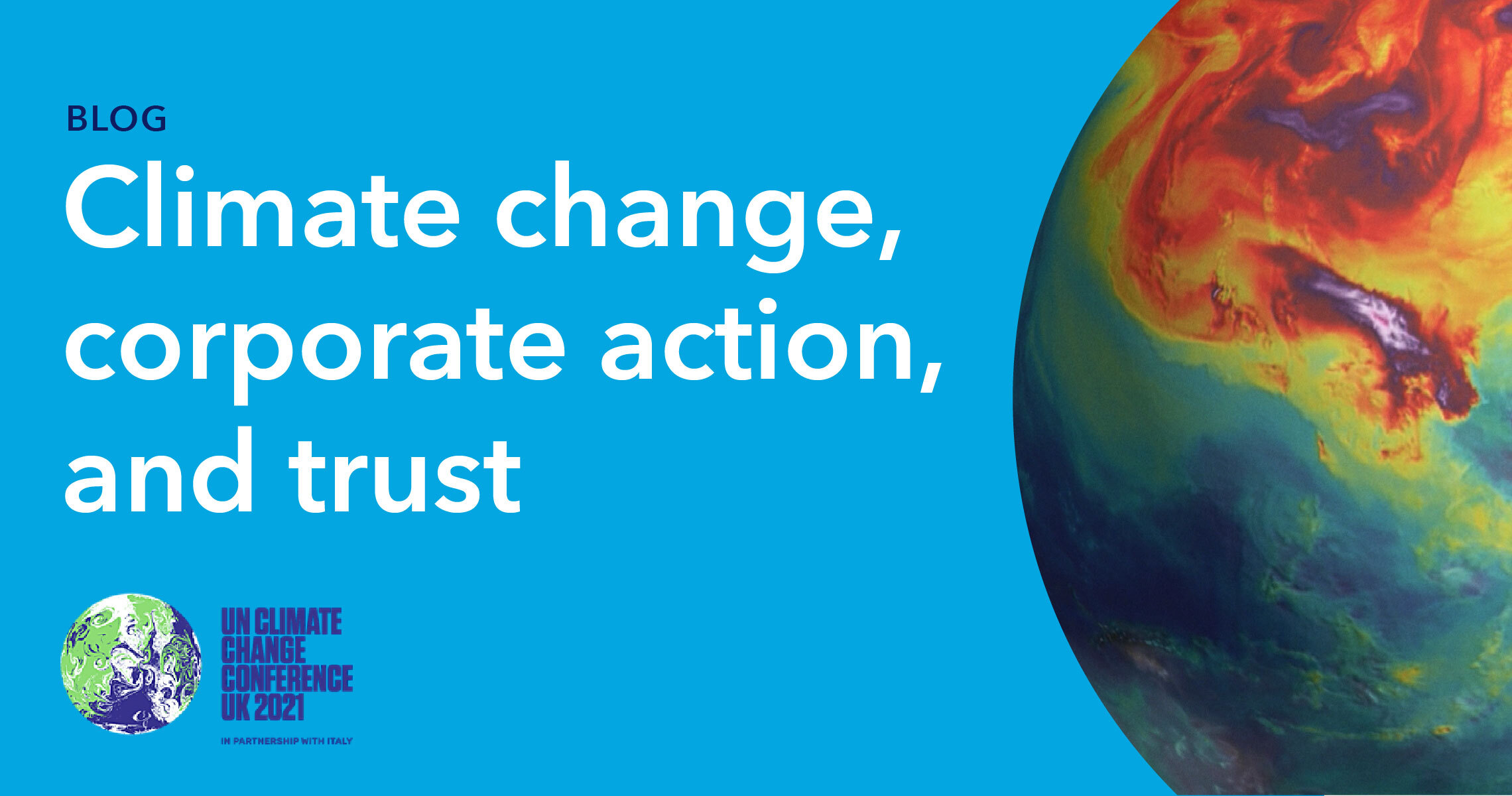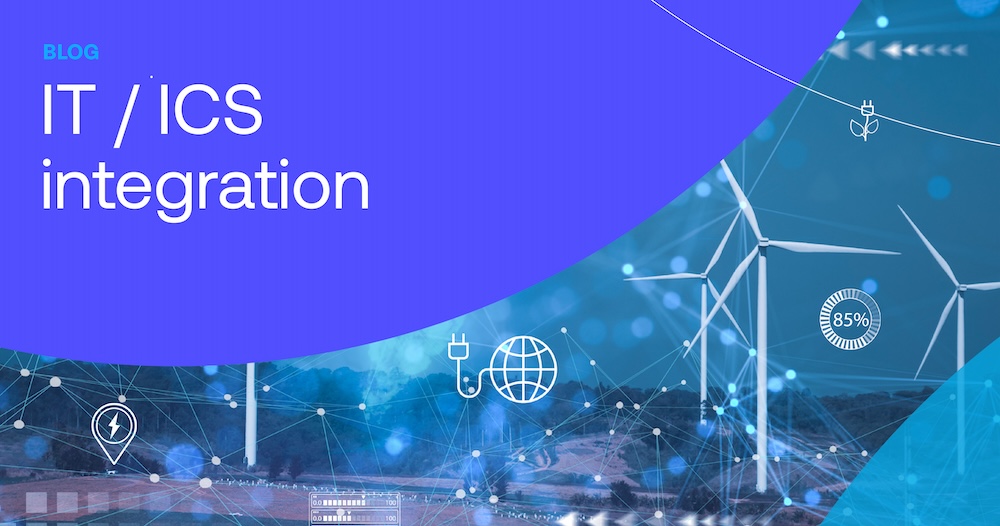From greenwashing to digital gaslighting: climate change, corporate action, and trust
Tackling the climate crisis requires companies to set and honor aggressive greenhouse gas emissions (GHG) reductions targets. While it is encouraging that companies are talking about the climate crisis, it’s often all bark and no bite. Many companies are engaging in greenwashing tactics, producing baseless climate transition plans, and engaging in fake emissions accounting. This is tantamount to gaslighting shareholders and customers. To overcome this we need to have accountability and oversight of corporate climate agendas. This all starts with trusted data.
Being a business in 2021 means being “carbon free” (Google), “beyond petroleum” (BP), in support of a “world without waste” (Coca Cola). “Sustainability” is the buzzword du jour. But, for all these fancy slogans and public displays of commitment, can we trust them?
Why companies have resisted change
It is important to remember that the environmental mess that we find ourselves in is largely the result of unbridled and unregulated corporate growth fueled by insatiable consumer consumption. We have for years been polluting the environment, free of consequence, while some companies have actively suppressed climate science and altered the public narrative around the climate crisis. But, business leaders are not fully to blame. Deregulation and a neoliberal policy agenda has for decades ensured that the primary goal of a corporation is to maximize short-term shareholder value, meaning that public company CEOs are slaves to quarterly earnings. Moreover, a clean environment is a public good and therefore is not priced into corporate balance sheets.
Ultimately “going green” will cost businesses in the short-run, despite having a huge payoff in the future. This is because the products that produce GHG emissions are often cheaper than products that do not. For example, the average retail price for a gallon of jet fuel in the United States over the past few years has been around $2.22, while advanced biofuels for jets cost around $5.35 per gallon, or 140% more. Innovation drives the price of clean inputs down over time, but we are currently lagging behind in the innovation and technology deployment that is necessary to drive the price of clean alternatives down to current price points. Put simply, without the availability of cheaper, greener alternatives, going green is going to cost.
How “Net Zero” compels companies to change
For years, businesses resisted action on climate change because too much money was at stake in changing the status quo. Plus, executives were traditionally graded on short-term profit gains so they had no incentive to ‘go green’ at the expense of their existing operations. However, 2020 and 2021 saw a surge of momentum on climate action due to a confluence of voices from youth organizations, business leaders, investors, politicians and, of course, scientists. “Net Zero” is the new destination and we are all on the train together. (“Net Zero” refers to a state in which the greenhouse gases going into the atmosphere are balanced by their removal out of the atmosphere. To achieve the 1.5°C warming limit set out in the Paris Accord, we need to reach Net Zero around 2050.)
To ensure that we collectively get to Net Zero, most jurisdictions are developing requirements for companies to disclose their emissions footprint and preparedness to climate risk. In the US, the SEC is in charge of framing and implementing mandatory emissions and climate-related disclosures. The EU has published two keystone regulations—the Corporate Sustainability Reporting Directive and the EU Green Taxonomy—to propel climate-related reporting. Other jurisdictions are following suit.
These new reporting requirements on businesses are onerous and because producing and selling greener products is going to be more expensive, who is going to take the hit? One way around all of this is to fudge the numbers. One of the most egregious examples of a company lying about its emissions is the Dieselgate scandal of 2015, whereby Volkswagen deliberately programmed its engines to activate emissions controls on their cars only during regulatory testing. Having passed the test, emissions controls were switched off and cars spewed 40 times more harmful NO2 in real-world driving. In the fallout, Volkswagen was forced to pay billions of dollars in settlements.
Companies have an incentive to bend the truth because billions of dollars are at stake. Investors are piling trillions of dollars into sustainable financial products like “responsible” stocks and green bonds. These financial products are tied to a company’s “green” credentials and so companies here could be tempted to engage in phony emissions accounting.
While Dieselgate was terrible for all involved, without a rational, consistent, and transparent set of controllable reporting standards, a Climate Enron scandal looms on the horizon. While individual corporate malicious actors can cause harm, an entire industry or a national level bending-of-reality will not only defeat the purpose of these reporting protocols, they will cause more harm than good. Auditing standards and regulations like Sarbanes-Oxley and Dodd-Frank in the United States and similar regulations across the planet have done tremendous things for compliance.
It’s an open question as to whether such regulations are needed for climate reporting, but in the short term, self-reporting against frameworks like the GRI, CDP, SASB, and other frameworks seems to be the way people are playing the game. But, as private equity and hedge funds go green and start investing along “green” lines, acting on fraudulent reporting could trigger billions in losses.
Moreover, rating agencies that score companies based on their “green” credentials do not disclose the kind of information that they use to rank companies and this lack of transparency has led to wild divergences in green rating scores. If corporate climate-related data were to be shared in a governed and trusted way with third parties, this problem would not arise.
Trust
As we embark on the road towards Net Zero, one of the core elements in building out an effective ecosystem for corporate climate-related data is trust. We need to move towards a world where companies can open up their climate-related data in a secure and trusted way. Companies should have control over who sees their climate disclosures and how their disclosures are being used by third parties. Indeed, with better data governance controls, companies would be able to see who has access to certain data and they would be able to place controls over who sees what and when.
In addition, regulators, shareholders, and decision-makers need to ensure that the data provenance is clean and from a reliable source. One of the core requirements of the EU Corporate Sustainability Directive is that companies get third-party assurance on their climate-related disclosures, so a data ecosystem for climate-related data must provide a traceable chain of data handling.
Another key element of trust lies at the device and sensor level, ensuring that sensors and other IoT edge devices can be trusted. The increasing threat of cybercrime has meant that malicious actors can tamper with devices and alter their output, whether done intentionally (as in VW’s case) or maliciously. Ensuring that we can trust the data that derives from IoT is crucial, especially when it comes to detecting certain GHGs like methane which are up to 25 times more damaging to the climate than carbon dioxide emissions.
This is not rocket science. The technologies and techniques needed to make these ecosystems possible have already been developed and proven. It is just a matter of implementation, corporate will, and better regulation. Granted the short timeframe we have to collectively reduce emissions, we need to ensure that companies are actually moving away from dirty business models, rather than continuing as normal. We need to start calling out companies that are pretending. The only way we can do this is through trusted data.
About Kezia Wright
Kezia Wright is Head of Climate & Sustainability at Intertrust. She is also an Advisor to the Clean Tech Alliance, a European consortium of sustainability professionals, and an active member of the Zero Waste Alliance Ireland, a non-profit that aims for policy change around waste in her native Ireland. She has previously been on the Leadership Team for the Young Professionals in Energy Bay Area Chapter, has worked for the World Wildlife Fund in Washington DC, and set up an environmental organization that was nominated for an Irish Red Cross Award. Kezia writes and releases music under the name “Kez.”




